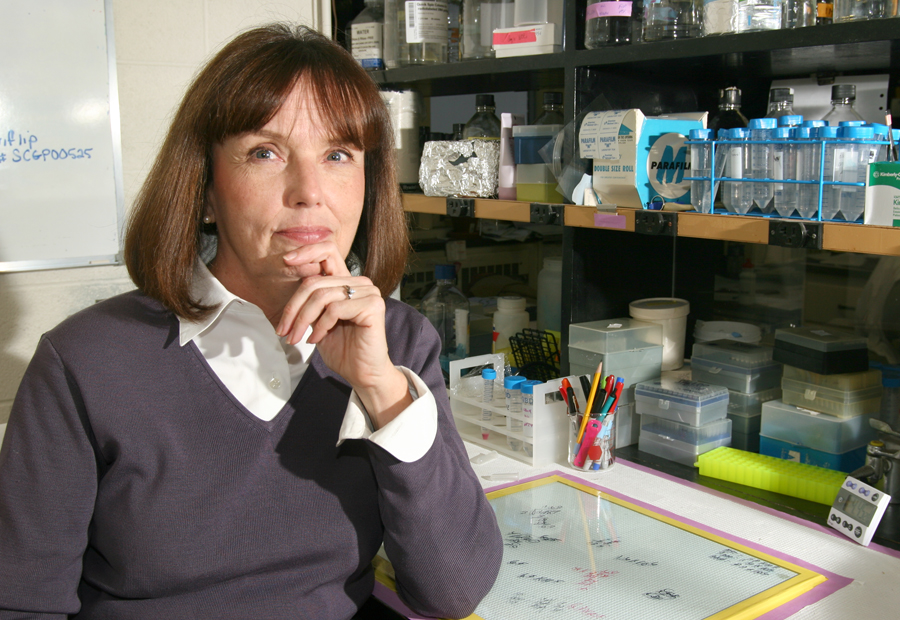
Endocrine Society member Ann Nardulli, PhD, passed away at home on June 27, 2018, at age 69, surrounded by family. The cause of death was cancer.
She graduated from Northern Illinois University with a Bachelor of Science in education and taught elementary school in Addison, where she had a reputation as a devoted and innovative teacher. After moving to Urbana, she earned a master of science and PhD from the Department of Physiology and Biophysics at the University of Illinois at Urbana-Champaign; and completed postdoctoral work in the Department of Biochemistry.
Subsequently, she joined the Department of Molecular and Integrative Physiology, where she spent her career teaching and studying the effects of estrogen in women. She was extraordinarily fortunate to work with many wonderful students, postdoctoral fellows, and scientists who became part of an extended scientific family. She loved learning about new scientific innovations and exploring ways to address novel areas of research. The research carried out in her laboratory was funded by the National Institutes of Health and the Department of Defense, and her work was published in a variety of scientific journals.
Ann was a devoted member of the University of Illinois faculty. She served on numerous departmental, school, and university committees and was particularly fond of spending time with the Hormone Chixx, a group of women from across campus who studied the effects of hormones in the body.
Ann made many contributions to the Endocrine Society including serving as chair of the Advocacy and Public Outreach Core Committee (APOCC) where she visited Washington, D.C., numerous times to meet with legislators on Capitol Hill and lobby for increased scientific research funding. She was also a member of the Endocrine Society’s Scientific Statements Task Force (SSTF) and an Editorial Board Member for Endocrine Reviews and Molecular Endocrinology.
She discovered that introducing students to the wonders of human physiology and endocrinology was extremely rewarding and was recognized for her teaching excellence. Her interest in student welfare prompted her to serve as a member and chairwoman of the Athletic Board and participate in the Department of Intercollegiate Athletics NCAA Certification Committee.
Ann spent many hours at the Mettler Center exercising and getting to know people who became dear friends. She also enjoyed gardening and cooking with the vegetables she raised. On Sundays, she could be found at Wesley Methodist Church enjoying the extraordinary music that filled the sanctuary.
Ann is survived by her husband, Peter; two children, Marc Nardulli and Beth Conlon, and their spouses, Jessica Nardulli and Joseph Conlon; and four devoted and loving grandchildren, Peter and Eric Nardulli and Jack and Lexi Conlon. She is also survived by two brothers, Bruce Wannemacher and his wife Barbara of Augusta, Ga., and James Wannemacher and his wife Cathy of Geneseo.
A memorial service will be at 10:30 a.m. July 21, 2018, at Wesley United Methodist Church, 1203 W. Green St., Urbana.
In lieu of other expressions of sympathy, contributions may be made to the Department of Molecular and Integrative Physiology for graduate student support.
Condolences may be offered online at www.morganmemorialhome.com.

